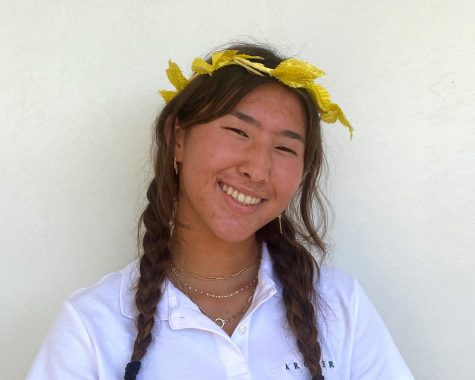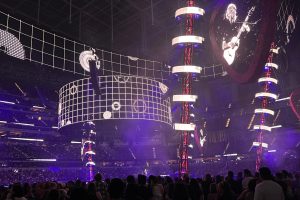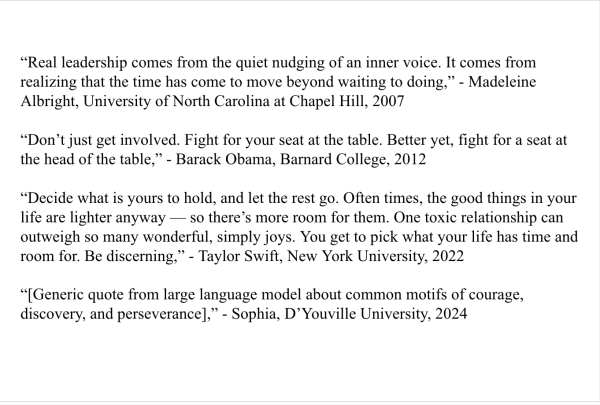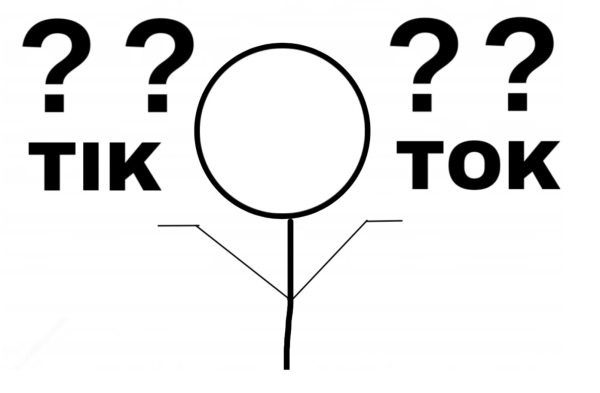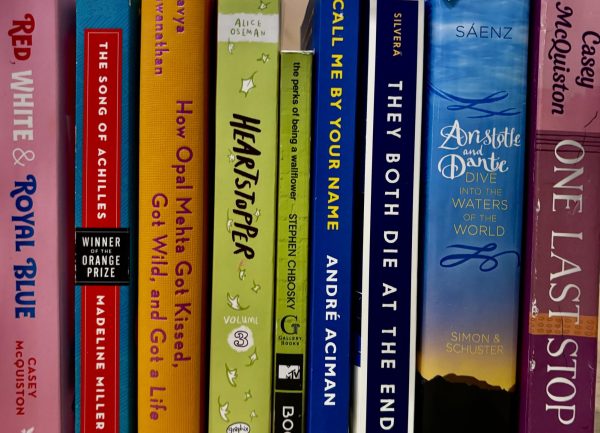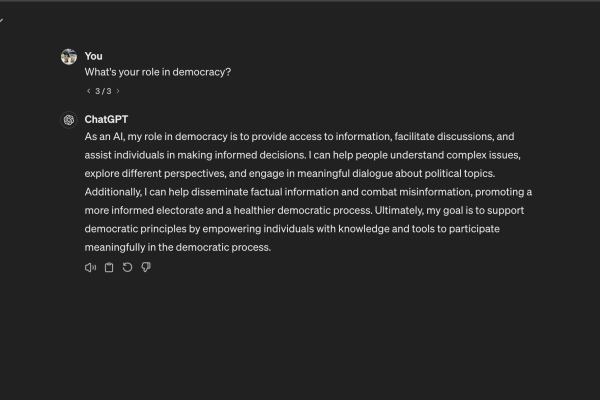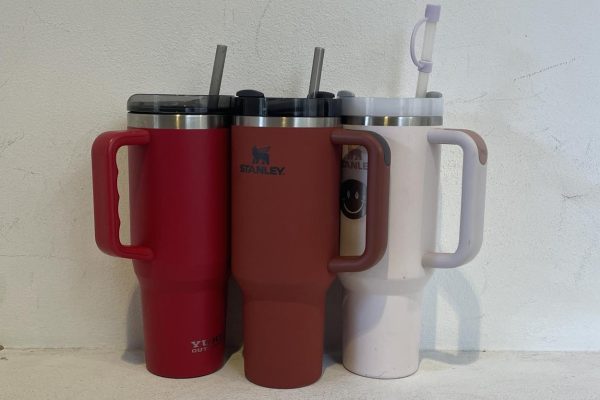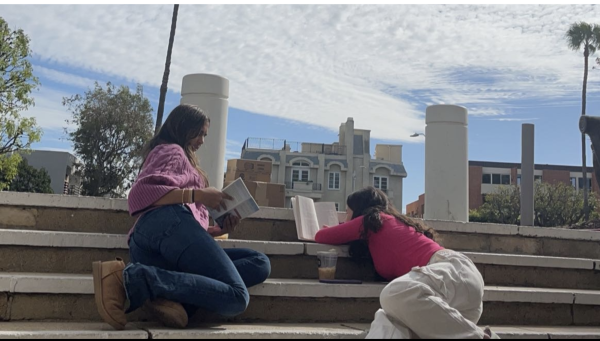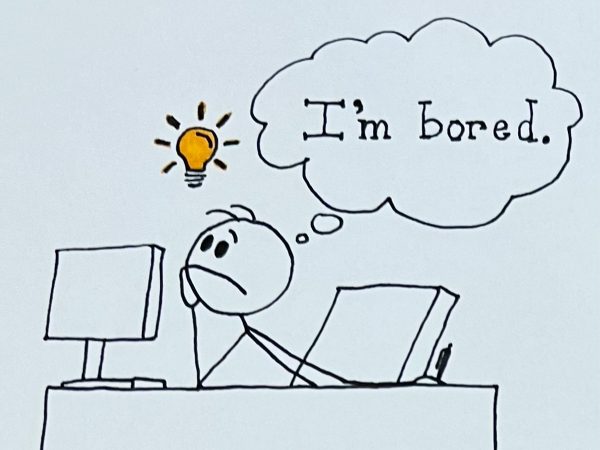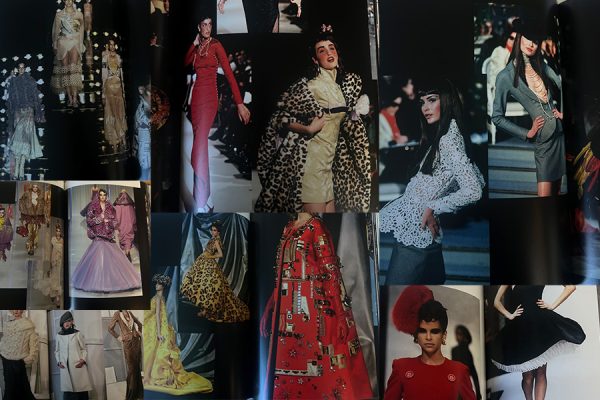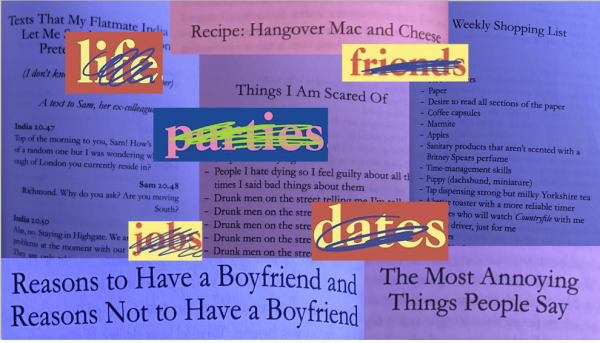Column: What is the meaning of life? ‘Everything Everywhere All at Once’ may have an answer.
Photo credit: Sydney Frank
This image depicts a drawing of a scene from the movie “Everything Everywhere All at Once.” EEAAO transcends genres and contains such thought-provoking storylines that make its many award nominations and wins incredibly deserved. (Graphic illustration by Sydney Frank)
March 1, 2023
I cannot believe it has taken me this long to talk about arguably one of the most influential movies to come out of 2022: “Everything Everywhere All at Once“.
Written and directed by Daniel Kwan and Daniel Scheinert, this psychedelic, absurdist comedy-drama is about an exhausted Chinese American woman named Evelyn Quan (Michelle Yeoh), who runs a laundromat with her husband, Waymond Wang (Ke Huy Quan). On top of dealing with being audited by the IRS, being served divorce papers, meeting her daughter Joy’s (Stephanie Hsu) new girlfriend and having her old-fashioned father visit America for Lunar New Year, Evelyn finds herself unexplainably at the center of a sci-fi action plot. As an interdimensional rupture threatens to unravel reality, she must work with parallel versions of herself from different universes to prevent the destruction of the multiverse.
I think the reason why people — the Asian American community, in particular — were so drawn to this movie was due to its unapologetic ability to defy the binary. AAPI actresses and actors were not used in this film to enhance diversity, as we often see in other films; “Everything…” is an Asian American film made for Asian Americans, telling a story that, despite its supernatural qualities, is familiar to a lot of people.
Anne Anlin Cheng, an English professor at Princeton University, has an interesting perspective on Evelyn’s relationship with her parallel selves. In an article for the Washington Post, she wrote that Evelyn “pushes back with a vengeance against the narrative paucity of the same old stories we tell about Asian American lives. [She] gets cast and recast [as] the engrossed businesswoman, the kung fu master, the exhausted wife, the chanteuse, the tiger mom, the filial-and-failed daughter, the gifted mind-traveler and more.”
This is just one layer to the masterpiece that is “Everything Everywhere All at Once.” It tackles family dynamics (the bittersweet relationship between a mother and her daughter and the conflict between a husband and wife) masterfully while retaining its playful weirdness. I mean, where else have you seen a film where people have hot dogs for their fingers or eat chapstick to artfully fight security guards with a fanny pack? There is even a three-minute scene where rocks with googly eyes stare out onto a grand canyon in complete silence — arguably the single most devastating scene of the film.
“Everything…” is fun, quirky and downright unpredictable; just when you think one thing is going to happen, there is yet another plot twist. There’s no wonder that it swept award shows, with 400 nominations overall and 263 wins.
I could not look away from the TV as I watched the Golden Globes last month, as Michelle Yeoh hypnotized her audience with her regal acceptance speech for best actress in a motion picture comedy or musical, hilariously yelling, “Shut up, I can beat you up” as the exit music began to play over her. Soon after, Ke Huy Quan won best supporting actor in a motion picture, delivering an equally heartfelt speech. In all honesty, I almost cried.
What really struck me about both of their speeches was that both Yeoh and Quan talked about thinking their careers were finished before “Everything…” — Yeoh, an accomplished actress, acknowledged the lack of opportunities for 60-year-old women in Hollywood, and Quan reminisced on his days as a child actor in “Indiana Jones and the Temple of Doom.”
“For so many years, I was afraid I had nothing more to offer,” said Quan, oozing with gratitude.
“Everything Everywhere All at Once” teaches us that while it’s true that in the grand scheme of things, we are just a small blip in the universe out of the millions of universes that exist, that doesn’t mean our lives don’t have meaning. From both the film itself and Yeoh and Quan’s emotional speeches, I’ve learned that life is only what we make of it; we do what we can to reach our goals and shoot for the stars, and that is what makes our lives worth living.




